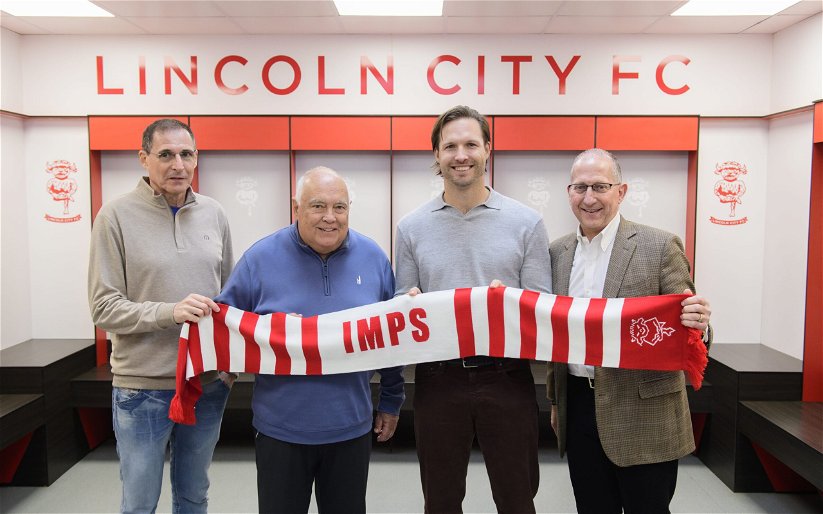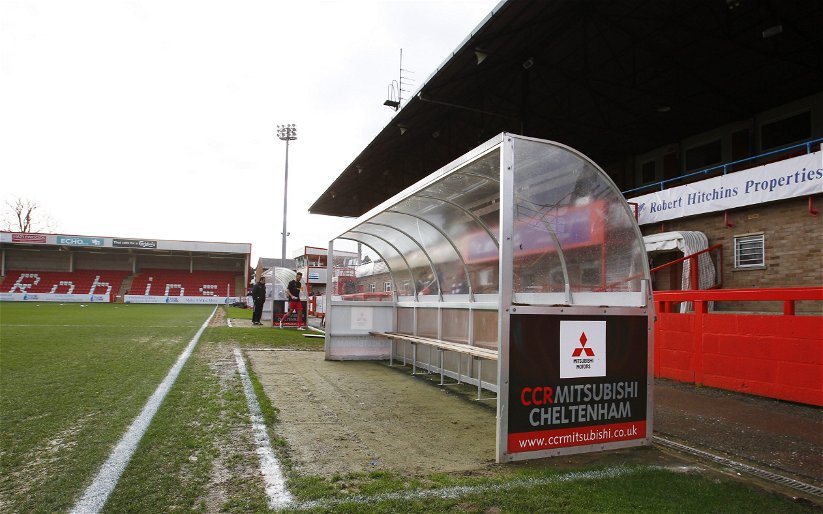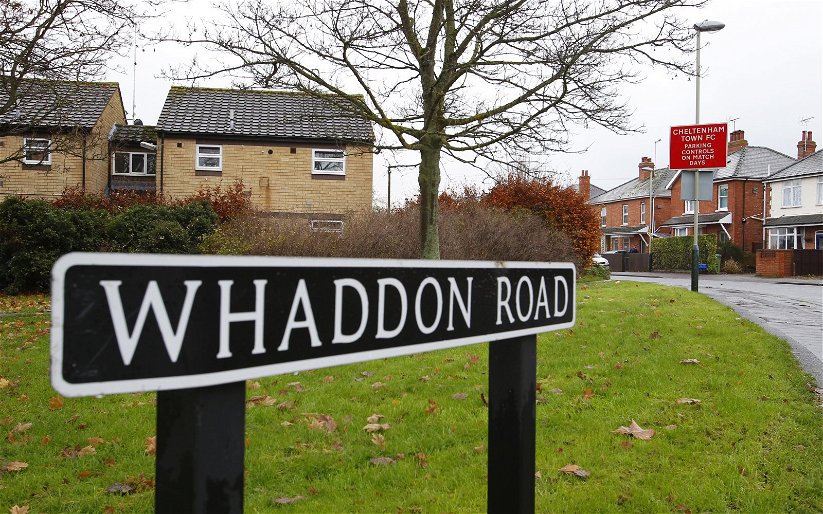We have already highlighted the problems of following in the footsteps of a successful father on several occasions in this series of articles, and now we meet another one in the form of Southend United manager Kevin Bond. Older fans will recall his colourful father John managing a number of top-flight clubs throughout the Seventies and Eighties, while even older fans will remember him as a West Ham legend twenty years earlier. Kevin was born in West Ham in June 1957 and proceeded to play under his more famous father for the first twelve years of his own career.
That all began at Bournemouth & Boscombe Athletic, as they were in those days. Father John was in his first managerial role and had taken Bournemouth to promotion from the Fourth Division in 1970-71 in his first season as a manager. Bond Senior almost took his side straight through to the Second Division at the first attempt, but at that time there were only two promotion places available from the Third Division and Bournemouth had finished third. His centre-back son Kevin had cut his teeth firstly with Walthamstow Rangers and later Strouden Park before joining Bournemouth on associate schoolboy forms at the age of fourteen in November 1971. Curiously, he was recommended to his own father by Bournemouth’s assistant manager Reg Tyrrell.
Having led Bournemouth to seventh in 1972-73, manager John departed for First Division strugglers Norwich City on 27 November 1973 and took Kevin to Carrow Road as an apprentice during the summer of 1974. Norwich were relegated at the end of that season but bounced straight back to the First Division in 1974-75. Norwich settled in mid-table, and on 10 April 1976, the eighteen-year-old centre-back made his first-team debut in a 0-0 draw at Leicester. Bond started to appear regularly during 1976-77, a season which produced an astoundingly tight lower half of the First Division in which Norwich were not theoretically safe despite being 15th with no games remaining. Norwich had a great start to the 1977-78 season, sitting fifth at the midway stage, although the second half of the season saw them slip to finish thirteenth. The 1978-79 season followed a similar pattern of a strong first half followed by a weaker second half, although they finished in no danger in fifteenth.
Norwich won their first three games of 1979-80 to top the First Division at the end of August. They also reached the quarter-final of the League Cup before losing to league champions Liverpool. On a personal level, on 15 October 1979 Bond made his debut for England B in a 4-1 win over New Zealand A at Brisbane Road. As per previous seasons, Norwich slipped over the second half of the season to finish in the bottom half. Bond was named Player of the Season after scoring eleven goals, which made him second top scorer behind Justin Fashanu. Bond was appointed captain for 1980-81 season, but in October 1980 father John left Carrow Road to take over at Manchester City. Kevin made his second and final appearance for England B in a 1-0 win over Australia A at St Andrew’s on 17 November 1980, watched by a paltry crowd of 3,292. However, he soon lost the captaincy after falling out of favour with new manager Ken Brown, and his days at Carrow Road drew to a close. Having made 161 appearances for Norwich, scoring 14 goals, Kevin signed for Seattle Sounders in February 1981 for a fee of £200,000.
Bond had a terrific season in the NASL Northwest Division, scoring an incredible 16 goals from his 30 appearances. It was a team full of British players such as Alan Hudson, David Nish, Roger Davies, Steve Daley, and Bruce Rioch. If you detect a Derby County thread, you are right: the coach was First Division title winner Alan Hinton. Bond was named in the NASL All-Stars Second Team (similar to the PFA divisional awards) and looked set for a great career in America. However, Bond felt that playing on a carpet in front of 10,000 fans was not for him, and chose to rejoin his father at Manchester City in September 1981 for £350,000.
City were known as a moneybags club at that time and had a number of expensive flops in their squad. Bond made his City debut on 19 September in a 3-0 defeat at Birmingham and remained in the side for the rest of a mid-table season. City won their opening three games in 1982-83 to lead the table and stayed in the top two until well into November. They remained in contention for a European place until well into the new year before manager John Bond resigned in February with the side sitting ninth. Not only did that signal the end of the manager/player relationship between the two Bonds, it also precipitated a catastrophic loss of form under new manager John Benson which produced three wins in seventeen games. The run sent them into the final game of the season needing a point at home to relegation rivals Luton, who had to win to stay up and relegate City in their place. Luton had the worst defence in the division, but City barely threatened. A goal from Luton substitute Raddy Antić with five minutes to go sent City into the Second Division and inspired David Pleat into one of the great celebrations of our time.
Benson resigned during the summer of 1983 and was replaced by Celtic legend Billy McNeill. City started well and competed at the top of the Second Division for the majority of the season. However, home defeats to promotion rivals Sheffield Wednesday and Newcastle proved very costly, and a run of three successive defeats at the end of April saw them finish ten points short of promotion in fourth. City got off to a mediocre start in 1984-85, and after a 3-2 home defeat by Fulham on 1 September 1984, Bond was sold to Southampton for £60,000.
Southampton had finished second in the First Division in May, their highest ever league position. However, they had started 1984-85 poorly and were bottom after five games. Bond made his debut in a 3-2 League Cup win over Hull, and Southampton recovered well to finish fifth in the league. They were destined not to appear in Europe the following season though, courtesy of the European ban imposed following the events at Heysel in May 1985. It was somewhat ironic that Southampton only qualified for Europe with a 1-1 home draw with Liverpool on the final day. Manager Lawrie McMenemy departed for Sunderland on 1 June 1985 and was replaced by former player Chris Nicholl. Southampton slipped into mid-table in 1985-86, the highlight being an FA Cup semi-final which was lost to two Ian Rush goals at White Hart Lane. Southampton turned in another mid-table season in 1986-87, and again lost a cup semi-final to Liverpool, this time in the League Cup by a 3-0 aggregate. They finished the season with nine games unbeaten, and 1987-88 looked more promising. What it actually delivered was a third mid-table finish in a row, but there was no cup semi-final this time.
It was time for a change, and in August 1988 Bond signed for his former club, Second Division AFC Bournemouth for £50,000. The manager there was a certain Harry Redknapp, an old colleague of his father’s from West Ham, and it was the start of a working relationship that would eventually span seven clubs and almost twenty years. Bournemouth had an inconsistent season in 1988-89 which produced another mid-table finish for Bond, but his performances attracted a £100,000 bid from Charlton in November. The 1989-90 season was to prove a big disappointment after a bright start. Bournemouth suffered a dreadful loss of form and were relegated after taking only seven points from their last sixteen games. Manager Redknapp was seriously injured in a fatal car accident in Italy during the 1990 World Cup Finals which affected his return for the 1990-91 season. Bournemouth made a reasonable attempt at bouncing straight back, but finished three points short of the play-offs in ninth. In June 1991 Bond was told he could leave. He lost the team captaincy to Jimmy Case in August but continued to play for the club until another club came in for him. Despite that inauspicious start, he went on to be named Player of the Season for 1991-92. Bournemouth missed the play-offs by three points again, and Redknapp resigned.
Bond was granted a free transfer during the close season of 1992 and signed for Alan Ball’s Exeter City in July. He made his debut in a 2-0 home defeat to Rotherham on the opening day but was unable to hold down a regular place as Exeter survived in the Third Division by a three-point margin. The most interesting game of the season took place on 2 May 1993 when the referee was attacked by Exeter fans after Port Vale were awarded a late penalty. Unable to make the side in 1993-94, Bond was released after just 19 appearances and ended his professional career at the age of 36. Having made over 600 appearances, he played a couple of games for Southern League Premier side Sittingbourne in March 1994 before finishing with another short spell at Dover.
In 1996 he was appointed reserve team manager at former club Manchester City under Alan Ball, his old manager from Exeter. It was a period of managerial and playing turmoil at Maine Road, and the position did not last long. After brief spells coaching at Wrexham and non-league Altrincham, he was appointed manager of Southern League Midland Division Stafford Rangers on 1 October 1997. Bond added some familiar faces to his squad including former Norwich teammates Keith Bertschin and Ian Butterworth, but Stafford were in decline at this point in their history and they ended the season in ninth place. Bond resigned on 3 May 1998 because an old friend had come calling again: the day after leaving Stafford he was appointed assistant manager to Alan Ball at First Division Portsmouth.
It was out of the Manchester City frying pan and into the fire for Bond, as a serious crisis engulfed Portsmouth that season. They went into receivership in February 1999 before being rescued by Milan Mandarić in May. Relegation was avoided only on goal difference, and better things were expected for 1999-2000 after substantial investment from Mandarić. Ball spent over £4 million on players but could not buy a win. After picking up just two points from eight games, Ball was sacked on 9 December 1999 with Pompey fourth from bottom. Bond lost his job five days later as Mandarić cleared the decks.
Following his departure from Portsmouth, he was asked to do some scouting for his favourite club West Ham, who were then managed by Harry Redknapp. Bond also appeared for Salisbury City reserves in September 2000 at the age of 43, although a mooted return to first-team action did not materialise. He then made a surprise return to Portsmouth in March 2002 as reserve team coach under Harry Redknapp, also taking on some coaching duties with the first team. Portsmouth won promotion to the Premier League for the first time in 2002-03 as First Division champions before finishing 13th in their first season. Redknapp then resigned on 24 November 2004 after a series of disputes with chairman Mandarić and controversially turned up as manager of rivals Southampton two weeks later. Bond followed Redknapp to Southampton shortly afterwards as first-team coach.
Southampton were fighting relegation from the Premier League, and were third from bottom when Redknapp and Bond arrived. There was to be no revival, and Southampton were relegated having won only four more games. Bond was appointed assistant manager during the 2005 close season, but Southampton sank into mid-table anonymity in the Championship. Redknapp was not happy with the appointment of Sir Clive Woodward as a coach, and it came as no surprise when Redknapp resigned on 3 December 2005 amid rumours of a return to Portsmouth. Redknapp’s return to Fratton was confirmed on 7 December 2005, and Bond joined him as assistant manager. Portsmouth were in the bottom three in the Premier League, but an impressive late-season run of six wins and two draws from their final ten games kept them up.
On 1 June 2006, Bond was appointed assistant manager of Newcastle United under his old England B teammate Glenn Roeder. The following month he completed the highest coaching qualification in the game, the UEFA Pro Licence. Things were looking good, but then came a bolt from the blue. In September 2006 he was the subject of allegations made in a Panorama investigation into football corruption arising from his time as assistant manager of Portsmouth. Initially placed on garden leave, he was controversially sacked by Newcastle without further process on 26 September 2006. Bond immediately started legal action against the BBC to compel them to release the full recordings, stating they had selected and edited sentences to fit an agenda. Six days before the case was due to come to trial in June 2009, Bond dropped the case. He was never charged with any offence.
On 12 October 2006, he was appointed manager of former club Bournemouth to the end of the 2006-07 season after beating off competition from Andy Hessenthaler and Phil Brown. Bournemouth were in the bottom half of the League One table and previous manager Sean O’Driscoll had departed for Doncaster. Bond lost his first five games to plunge Bournemouth into the bottom three. He brought in a raft of new players including an incredible fifteen on loan, and there was a remarkable alternating sequence of two wins followed by two defeats from New Year’s Day until the end of March. The run was enough to keep the club up, and Bond was awarded a permanent contract by new owner Jeff Mostyn.
There were more sweeping changes on the playing side during the 2007 close season and Bournemouth started the season with only sixteen players. The problems were compounded by a string of injuries that decimated the small squad. Financial problems and a winding-up petition from HMRC made the survival bid almost impossible, and on 8 February 2008, the club entered administration and incurred an automatic ten-point deduction. The penalty dropped the side from third-bottom to bottom and left them eleven points adrift of safety. Against all odds, there was an astonishing run of six successive wins that left Bournemouth in the bottom four by a single point. Unfortunately, they could only draw their final game at Carlisle, and Bournemouth were relegated following Cheltenham’s win over Doncaster.
Financial problems continued into 2008-09, and Bournemouth were deducted a further seventeen points for not exiting administration. Curiously, they were not bottom of League Two, that place being occupied by Luton Town after a thirty-point deduction. To complete an unsavoury hat-trick, Rotherham were third from bottom following their own seventeen-point deduction. After two points from the opening four games, it came as little surprise when Bond was sacked on 1 September 2008. Interestingly, Bond’s player-coach was also dismissed: a chap named Eddie Howe.
On 27 October 2008 Bond joined up with Redknapp once again when he was appointed assistant manager of Tottenham Hotspur. Spurs were bottom of the Premier League with five points from nine games, but Redknapp and Bond dragged the side up the table to finish eighth, two points short of a European place. They also reached the final of the League Cup where they lost to Manchester United on penalties. Spurs had a great season in 2009-10, finishing fourth and qualifying for the Champions League for the first time. They also reached the FA Cup semi-finals where ironically they lost unexpectedly to Portsmouth, and the League Cup quarter-finals. A fifth-place finish in 2010-11 brought qualification for the Europa League, but the season was dominated by a run to the quarter-final of the Champions League where they were beaten 5-0 on aggregate by Real Madrid. Spurs finished fourth in 2011-12, although that only qualified them for the Europa League this time. They also reached the semi-finals of the FA Cup where they were beaten 5-1 by Chelsea. Despite four excellent seasons, Redknapp was sacked on 13 June 2012 and Bond followed shortly afterwards.
On 26 November 2012 Bond was appointed assistant manager of Queens Park Rangers, who had a new manager named Harry Redknapp. Rangers were bottom of the Premier League with only four points from thirteen games, but this time there was no escape and they were relegated well before the end of the season. Rangers finished 4th in the Championship in 2013-14 and bounced back to the Premier League with a 1-0 win over Derby in the play-off final. The yo-yo existence continued in 2014-15 as Rangers were again relegated in bottom place. Redknapp had resigned in February 2015 and Bond departed on 30 June at the end of his contract.
In March 2016, Bond assisted Redknapp as manager of the Jordan national team for two games, an 8-0 win over Bangladesh and a 5-1 defeat to Australia. On 11 April 2016 Bond was appointed manager of Hong Kong Pegasus towards the end of the HK Premier League season. Although Pegasus lost both league games under Bond, they won the Hong Kong FA Cup with a 4-3 victory on penalties over Yuen Long. HK also won the Sapling Cup with another penalty shootout victory, this time by 3-1 over South China. His stay in Hong Kong was to be a very short one. On 6 June 2016 he was appointed first-team coach of Aston Villa under new manager Roberto Di Matteo, but his stay there was to be short too. Di Matteo was sacked in October with Villa near the bottom of the Championship, and Bond followed on 13 October when new manager Steve Bruce brought in his own backroom staff. On 7 November 2016 Bond was reappointed Hong Kong Pegasus manager, and he led them to an eighth-place finish.
On 28 June 2017 he was appointed assistant manager to Harry Redknapp at Championship side Birmingham City on a one-year contract, the seventh club at which Redknapp and Bond had worked together. There was also another connection to father John, who had been manager at St Andrew’s for a short spell in the Eighties. However, Kevin’s spell there was destined to be even shorter: Redknapp and Bond were sacked on 16 September 2017 with Birmingham in the bottom two.
In March 2018 he commenced scouting duties and compiling match reports for Portsmouth. He also acted as an advisor to former club Hong Kong Pegasus and was linked to the Hong Kong national team manager role in October 2018. In February 2019 he managed a Hong Kong League Select XI to third place in the annual Lunar New Year Cup and was linked with the job as Hong Kong national team manager for the second time. Then on 2 April 2019, he was named caretaker manager of relegation-threatened League One side Southend United. Southend had taken just four points from their last twelve games and were one of eight teams near the foot of League One separated by just three points. Southend collected only two points from Bond’s first three games to slip further into the bottom three, but a win over Burton kept them in it. They went into the final game at home to high-flying Sunderland needing a win to ensure safety, and a goal from Stephen Humphrys with three minutes to go kept them up. A draw would have seen them relegated. On 17 May Bond was appointed manager on a two-year deal.
Kevin Bond may feel he has never had a fair crack of the whip in management in this country, spending the majority of his career as a coach and assistant manager. His two-year spell at Bournemouth was blighted by financial problems and points deductions, after which he reverted to his accustomed position as number two to Harry Redknapp. At the age of 62, Bond now has the opportunity to make his name as a manager in his own right. He has vast experience as a player and coach at his disposal, and there is not a Redknapp in sight. At least, for the time being.

Key:
P = Promoted; R = Relegated; SF = Lost in play-off semi-final; F = Lost in play-off final; PO = Won play-off final; D = Demoted.
Figures are league games only; cup matches and play-offs are not included.
League position shown is either the position at the end of the season or the position at the time of departure.
* Bournemouth were deducted 10 points for entering administration on 8 February 2008 which effectively relegated the club to League Two.
Their true finishing position would have been 15th. Bournemouth were deducted a further 17 points at the start of 2008-09 for failing to exit administration. The points per game figures for both seasons and for Bond’s overall record obviously use the figures prior to the deductions.

Writer: Scotimp
Who Are The League One Managers? No.20: Kevin Bond (@SUFCRootsHall):https://t.co/jMb2BD40GI#Blues #Southend #SkyBetLeagueOne
— Vital Lincoln City (@VitalLincoln) July 28, 2019
https://www.facebook.com/VitalLincolnCity/posts/2321490764553822



